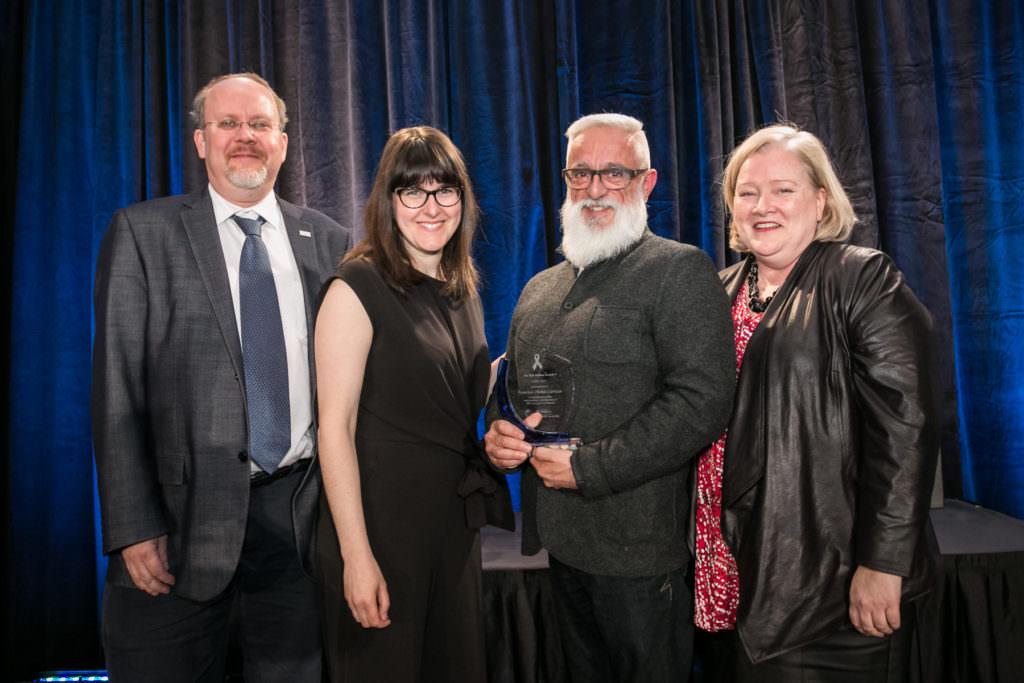 This year’s Red Ribbon Award Winner is Francisco Ibáñez-Carrasco, Director of Education and Training at the Ontario HIV Treatment Network and program manager for Universities without Walls (UWW). The Red Ribbon Award is presented annually for outstanding service to the cause of research in a way that has increased our understanding of the treatment and prevention of HIV/AIDS, while enhancing the quality of life of those living with this disease.
This year’s Red Ribbon Award Winner is Francisco Ibáñez-Carrasco, Director of Education and Training at the Ontario HIV Treatment Network and program manager for Universities without Walls (UWW). The Red Ribbon Award is presented annually for outstanding service to the cause of research in a way that has increased our understanding of the treatment and prevention of HIV/AIDS, while enhancing the quality of life of those living with this disease.
Francisco has long been an advocate for people living with HIV in Canada. In 1986 he arrived in BC from Chile and was diagnosed with HIV shortly afterwards. This put him in the unenviable position of ‘research subject’ and his experiences here would guide his future. “I realized that researchers were asking me to do a lot of things,” Francisco says. “How could it be that the people who were being asked to do surveys or give samples of blood or answer very personal questions were somehow peripheral to the work?” From then on he became an advocate for the meaningful involvement of people with HIV in research.
Francisco is unique in that he is able to sit on several sides of a table, as a teacher (with a doctorate in Education from Simon Fraser University), a social science researcher, and as a person living with HIV. His down-to-earth approach helps him to relate to people and it’s critical for the line of work he’s in. “I find community based research tremendously intimate,” Francisco explains. “To have to discuss issues around bareback, violence or drugs—these topics are not just prickly, they are deeply personal. I’m the Queen of the Intimate,” he says jokingly.
But for Francisco, it’s the small and intimate conversations that are so productive. “I travel this amazing country for work and activism, I try to stay in the back of the room and chat with people. After being bombarded with data, charts and graphs, people want to get real and into the nitty-gritty of research. I’m there for that. Everybody has a place in HIV research.” He takes the most pride in changing individual lives: “If one person changes their viewpoint, or they say ‘I never thought I could do that, it sounds kind of fun and I’m going to try it’. If I can talk to just one person who will be a leader tomorrow, that’s the greatest reward.”
Universities without Walls reflects his philosophy to empower people with HIV to actively participate in research both for the benefit of the participants and the project. “If you dignify the situation, make it fun, and compensate them for their contribution, people will take the opportunity every single time. If you put your heart into it, people will do amazing things and they will surprise you.”
CAHR would like to congratulate and thank Francisco for his continued advocacy and his contributions to the field of HIV research in Canada and abroad. He will be presented with the Red Ribbon Award at the CAHR conference in Montreal, Quebec
